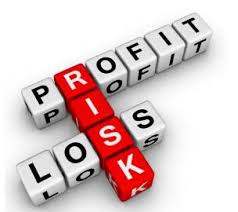 Many people who have a gambling addiction do not understand the psychology behind their addiction. They simply know that their craving to gamble is overwhelming. What they do not realize is that it is not the gambling itself that is addictive. It is the risk taking element. Taking risks is part of human nature. There are healthy risks to take and unhealthy risks to take. Those who are addicted to gambling are addicted to risk taking, regardless of how calculated the risk is. Risk is exciting and creates the pleasure chemical dopamine, which a person will attempt to generate again and again despite negative consequences.
Many people who have a gambling addiction do not understand the psychology behind their addiction. They simply know that their craving to gamble is overwhelming. What they do not realize is that it is not the gambling itself that is addictive. It is the risk taking element. Taking risks is part of human nature. There are healthy risks to take and unhealthy risks to take. Those who are addicted to gambling are addicted to risk taking, regardless of how calculated the risk is. Risk is exciting and creates the pleasure chemical dopamine, which a person will attempt to generate again and again despite negative consequences.
We all know that taking risks is exciting. Taking risks is in our psychological make up. We are meant to get a thrill from taking risks that are calculated in a healthy, moral frame of mind. However, some people discover the pleasure that can be found in risk taking and lose all ability to exercise control over it. They love the rush they receive from it and begin to take risks that are purely motivated by pleasure seeking, lacking any intelligence or foresight.
The reason that risk taking gives people such pleasure and excitement is because it produces dopamine. Dopamine is the brain chemical that is released when people discover a substance or process that gives them pleasure. When people who are prone to addiction discover something that rewards them with dopamine, they quickly become hooked on it. Dopamine is something that everyone should be able to enjoy in moderation, but it is problematic for people who struggle with addiction.
These types of people tend to become addicted to gambling when they discover it. Despite it being too great a risk, people will invest everything they own into it and end up losing it all, which frequently jeopardizes their careers, reputations and relationships. Gambling is an addiction that can unravel your life and even end it if you borrow money to gamble with from the wrong people. If you or someone you care about are addicted to gambling, do not hesitate to receive treatment.
